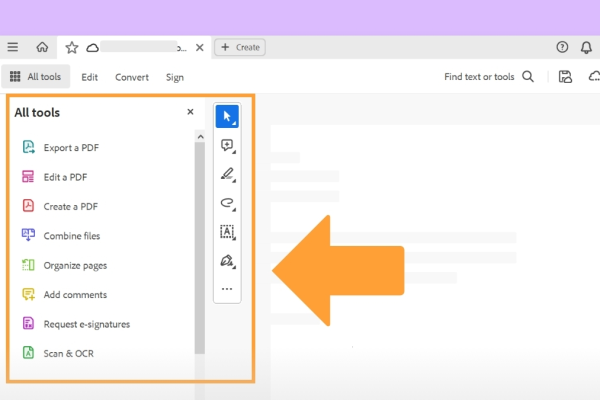When it comes to the benefits of digital education, In an era where the internet has become our daily dose, digital education has emerged as a superhero in disguise, capably swooping in to save the day. Gone are the days of lugging around heavy textbooks or being caught snoozing in the back of a lecture hall.
Now we have the power of education at our fingertips, accompanied by various digital platforms.
In the vast ocean of digital learning, popular apps like Duolingo, Udemy, and Khan academy provide great learning resources. Whether you are a student, teacher, or lifelong learner these platforms are good for every age user.
After all what better than the place to infuse humor than in our virtual classrooms and educational platforms?
But wait, you might be wondering why these platforms are popular.
Moreover, digital education offers flexibility and customization that caters to diverse learning needs. It recognizes that each individual possesses unique strengths, challenges, and learning styles.
Through adaptive learning technologies, personalized assessments, and interactive multimedia resources digital education tailors the learning experience to meet the specific requirements of learners, fostering a sense of inclusivity and empowerment.
The power of connectivity that digital education brings through online communities, discussion forums, and collaborative projects. Learners from various backgrounds can engage in meaningful interactions, exchange ideas and gain exposure to diverse perspectives.
Although digital platforms offer a plethora of resources for lifelong learners. Whether you seek to expand your knowledge in a specialized field, explore new hobbies, or embark on a journey of self-improvement the digital world presents a treasure trove of educational content, readily available at your fingertips.
With this being said, let’s dive into the blog.
Rise of digital education
The digital transformation in education and the increasing use of digital technologies made it convenient for educators to access learning. This trend has gained significant momentum in recent years and has been further accelerated by the pandemic.
This forced many educational institutions to adopt remote teaching methods. When it comes to inclusivity in digital education refers to the principle of ensuring equal access and opportunities for all learners regardless of their background, abilities, or circumstances.
However, the main aim of digital learning is to eliminate barriers that may prevent certain individuals or groups from fully participating in online learning experiences.
Let’s look at the Digital education market:
In recent years, the digital education market has experienced significant growth, driven by advancements in technology. The market encompasses various segments including online learning platforms, virtual classrooms educational software and applications, eLearning content providers, and more.
Digital education market growth:
The global digital education market has been experiencing significant growth. According to research and markets, the market was valued at around $101.8 Bn in 2019 and was projected to reach $370.7 Bn by 2026. With a compound annual growth rate of 21.7% during the forecast period.
Massive Open Online Courses:
MOOCs have gained popularity as a form of digital education. In 2021 the number of MOOC learners surpassed 200 m globally, with platform like Udemy, Coursera, and edX offering a wide range of courses from prestigious universities and institutions.
Benefits of digital education
Edtech app development offers numerous benefits that contribute to the transformation of traditional learning environments.
Here are some key benefits of digital education:
Accessible learning materials
The best digital platform for education should provide learning materials and resources in various forms( text, audio, video). Accommodating with assistive technologies such as screen readers or captioning enables students with disabilities to access the content.
Flexible learning environments
The best benefit of digital education, learning platforms offer flexibility to learn at one own pace and from any location, removing barriers related to physical accessibility and geographical constraints.
Moreover, it allows learners with disabilities, health issues, or other personal commitments to access education on their terms.
Multilingual support
Providing content and digital educational resources in multiple languages enhances inclusivity by catering to diverse linguistic backgrounds. It ensures that learners who are non-native speakers of the language of instruction can participate fully and understand the course of content.
Universal design for learning
Implementing the principles of UDL helps create inclusive digital learning environments. This has solved the most complex challenges of digital education.
UDL emphasizes designing instruction, materials, and assessments in a way that accommodates different learning preferences and abilities.
This approach ensures that learners with varying needs can engage effectively with the educational content.
Collaboration and engagement
Online learning platforms can foster collaboration and interaction among students through discussion forums, virtual group projects, and interactive learning activities.
Inclusive digital learning is among the best benefit of digital learning. As it promotes inclusive learning and encourages participation from all learners, valuing diverse perspectives and experiences.
Supportive learning communities
Building inclusive online communities that foster a sense of belonging is crucial. Providing platforms for learners to connect with peers, instructors, and support staff can help overcome feelings of isolation and promote an inclusive learning environment.
Assessment and evaluation
Designing fair and unbiased assessments is essential when it comes to the advantages of digital education. The assessments should be structured to measure learning outcomes effectively while considering different abilities backgrounds and learning styles.
However, providing alternative assessment methods or allowing flexible submission formats accommodates diverse learner needs.
Addressing the digital divide
Digital technology and education acknowledge the digital divide that exists due to disparities in access to technology and internet connectivity.
Efforts should be made to provide the necessary resources and support to understand communities to bridge the gap and ensure equitable access to online learning opportunities.
Latest Trends In Digital Learning
| Microlearning | This is quite trending among users, it involves delivering content in small, bite-sized modules or lessons that can be consumed quickly.
It focuses on delivering specific learning objectives or skills in a concise and targeted manner. |
| Gamification | Gamification incorporates game elements such as rewards, badges, leaderboards, and challenges, into the learning experience to enhance engagement and motivation. |
| Virtual reality and Augmented reality | AR and VR technologies are being increasingly used in digital learning to create immersive and interactive experiences. |
| Artificial intelligence | AI-powered technologies and adaptive learning systems are being utilized to personalize the learning experience.
Plus, AI algorithms analyze learner data and behavior to provide tailored content, recommendations, and feedback. |
| Social learning and collaboration | Digital learning platforms are incorporating social features to promote collaboration, interaction, and knowledge sharing among learners. |
| Data analytics and learning analytics | Data analytics and learning analytics leverage the power of data to gain insights into learners’ behavior, performance, and engagement.
Moreover, data-driven insights help personalize learning improve educational outcomes, and support evidence-based decision-making. |
| Continuous professional development (CPD) | Lifelong learning and continuous professional development have become integral in the digital learning landscape.
Digital learning platforms offer a wide range of CPD opportunities, including industry-specific certifications, micro-credentials & short-term up-skilling programs. |
Wrapping Up
The use of digital technology in education has the potential to change the entire landscape of digital education. Today professionals are seeking online courses and programs to acquire new skills and enhance their expertise and stay relevant in a rapidly changing job market.
By leveraging technology and implementing inclusive practices, educational institutions can create accessible, engaging, and supportive learning environments.





